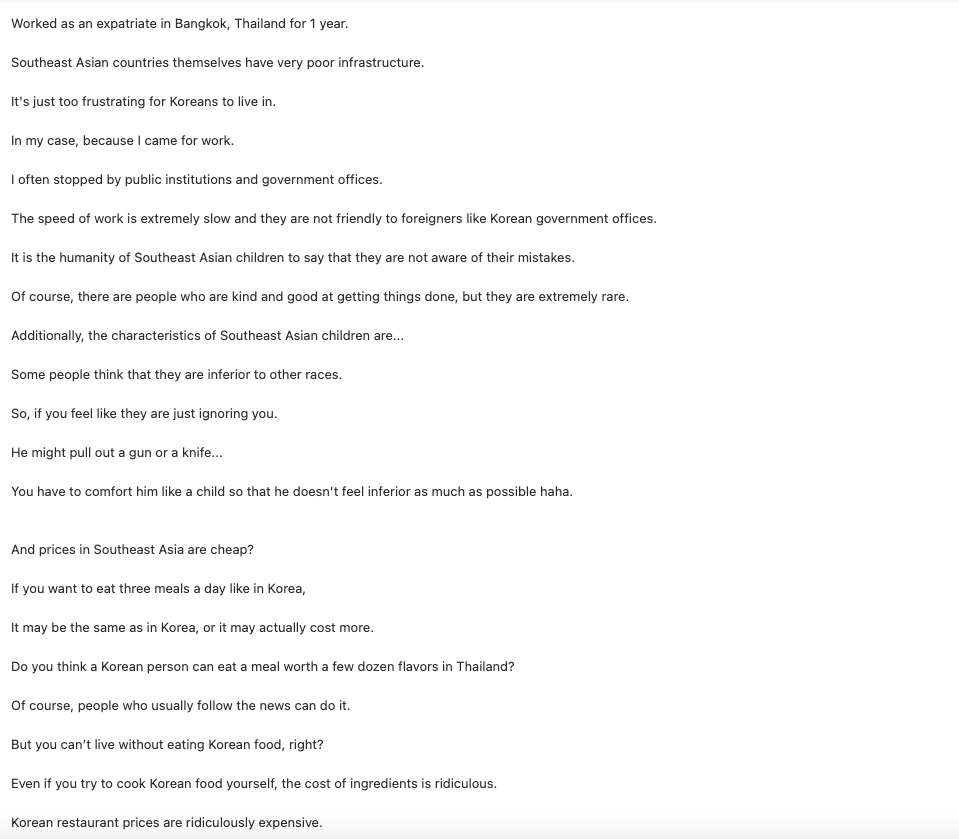Do South Koreans Look Down on Southeast Asians? (Real K-netizen’s comment Translation)

Understanding Perceptions: Do South Koreans Look Down on Southeast Asians?

In the complex landscape of cultural perceptions and biases, discussions surrounding the treatment of Southeast Asians by South Koreans often reveal layers of societal dynamics, historical influences, and individual perspectives. Let’s delve into the nuances of this topic based on real experiences and observations.
Subtle Racism: A Reality Check
To address the question directly, yes, there is a prevalent sentiment among some South Koreans that can be interpreted as looking down on Southeast Asians. This sentiment stems from various factors, including socioeconomic stereotypes and cultural differences.
Socioeconomic Stereotypes:

Many South Koreans hold certain stereotypical views towards Southeast Asians, perceiving them to be underqualified or coming from economically disadvantaged backgrounds. This perception may lead to subtle prejudices, where Southeast Asians are not always regarded with the same level of respect or consideration.
Cultural Differences:
Cultural factors also play a role in shaping attitudes towards Southeast Asians. For example, the prevalence of Islamophobia in Korean society may lead to negative perceptions towards Southeast Asians who practice Islam. Additionally, language proficiency and assimilation into Korean society can influence how Southeast Asians are perceived and treated.
Historical and Geopolitical Influences:
South Korea’s history of colonization, geopolitical positioning, and dependency on global powers like the United States can contribute to feelings of insecurity and inferiority. As a result, some South Koreans may seek validation by positioning themselves hierarchically above other groups, including Southeast Asians.
Examining the Complexities
It’s crucial to acknowledge that not all South Koreans hold negative attitudes towards Southeast Asians. Many individuals actively reject stereotypes and prejudice, promoting inclusivity and understanding.
Neutral Perspective:
While acknowledging the existence of subtle racism and biases, it’s essential to approach this topic with nuance and empathy. Cultural perceptions are multifaceted and shaped by various factors, including personal experiences, societal norms, and historical contexts.
Encouraging open dialogue, promoting cultural exchange, and fostering empathy can contribute to building bridges between communities and combating prejudices. By acknowledging and addressing these issues, we can strive towards a more inclusive and equitable society where individuals from diverse backgrounds are valued and respected.
In conclusion, while challenges persist, there is hope for positive change through education, advocacy, and mutual respect. Let’s continue to work towards creating a world where diversity is celebrated, and all individuals are treated with dignity and equality.
Real K-netizen’s comment (Translated)



